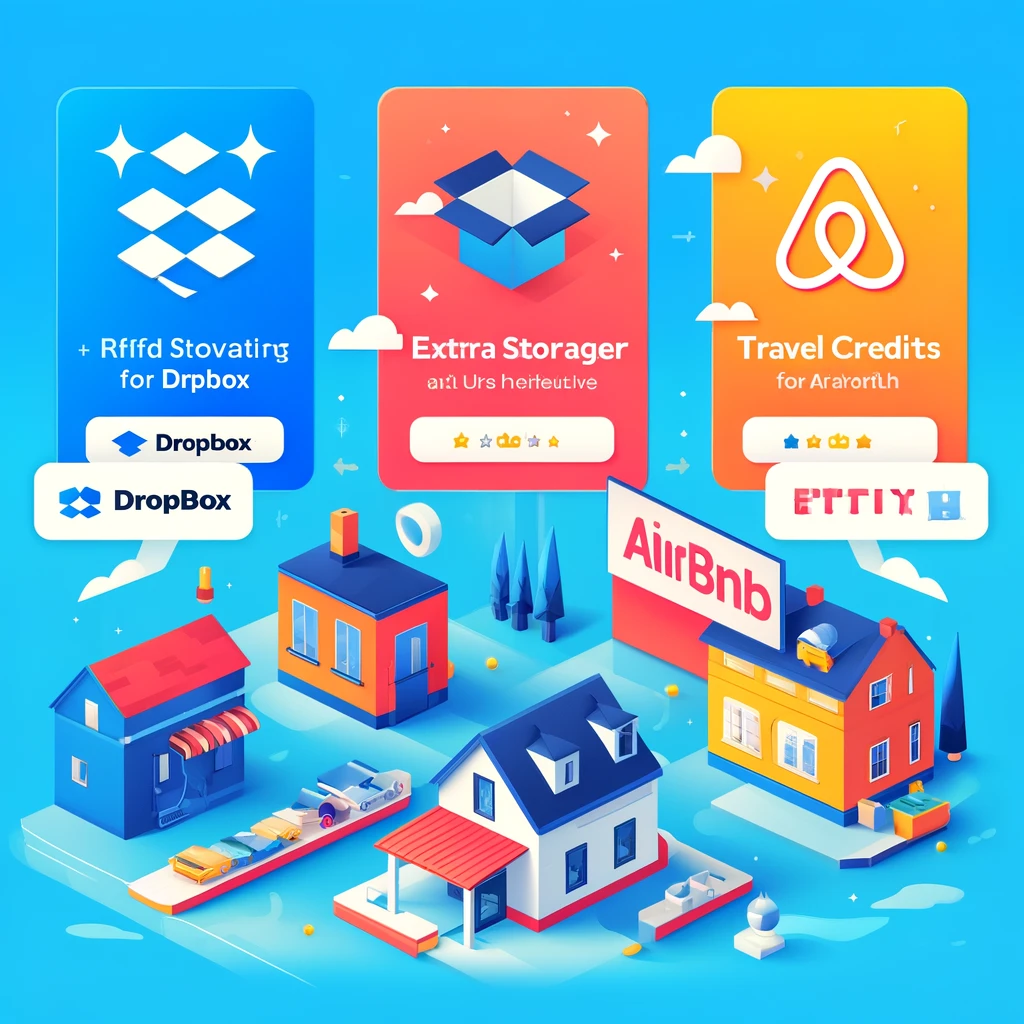Winning New Customers Through Trust
What is Referral Marketing?
Referral marketing, often termed as word-of-mouth marketing, is a strategy where businesses encourage their existing customers to refer new customers to their products or services. This approach leverages the trust and relationships that existing customers have with their network, making it a powerful tool for acquiring new customers.
Word-of-mouth has always been a cornerstone of business growth, long before digital marketing and social media. The principle is simple: people trust recommendations from people they know. According to our recent research, 92% of consumers trust recommendations from friends and family over any other form of advertising. This trust is what makes referral marketing so effective.
Over the years, referral marketing has evolved significantly. From simple in-person recommendations to sophisticated digital referral programs, businesses now have a plethora of tools and strategies to harness the power of referrals. Today, referral marketing is more structured and data-driven, allowing businesses to track and optimize their referral efforts effectively.
Section 1: The Power of Referral Marketing
Why Referral Marketing Works
Referral marketing is effective because it taps into fundamental psychological principles. Here are a few key reasons why it works:
- Trust: People trust recommendations from friends and family more than any other form of advertising.
- Social Proof: Seeing others use and endorse a product or service provides social proof, making potential customers more likely to try it themselves.
- Reciprocity: When people receive something of value, they often feel compelled to reciprocate, which can lead to them referring others.
The statistical benefits of referral marketing are substantial. Studies have shown that referred customers are more loyal and have a higher lifetime value than customers acquired through other means. Referred customers are 18% more likely to stay with a company and spend 13% more than non-referred customers.
Case Studies
- Dropbox: Dropbox's referral program is one of the most famous examples of successful referral marketing. By offering extra storage space to both the referrer and the referred, Dropbox saw a 3900% growth in 15 months.
- Airbnb: Airbnb's referral program offered travel credits to both parties, leading to a significant increase in new users and bookings.
Section 2: Building a Referral Program
Key Components of a Successful Referral Program
To build a successful referral program, several key components must be in place:
- Clear Value Proposition: The benefits of referring someone must be clear and compelling.
- Attractive Incentives: Offer rewards that are attractive enough to motivate customers to refer others.
- Easy-to-Use Referral Process: Make the referral process simple and straightforward to encourage participation.

Steps to Create a Referral Program
- Identify Goals and Metrics: Determine what you want to achieve with your referral program and how you will measure success.
- Choose the Right Incentives: Select incentives that will motivate your customers to refer others.
- Design the Referral Process: Create a seamless and easy-to-navigate referral process.
- Implement Tracking and Analytics: Use tools to track referrals and measure the success of your program.
- Promote the Program: Use various channels to promote your referral program to your existing customers.
Section 3: Strategies for Effective Referral Marketing
Leveraging Social Media
Social media is a powerful tool for referral marketing. Here are some strategies to leverage it effectively:
- Utilize Platforms Like LinkedIn, Facebook, Instagram: Share referral links and success stories on these platforms to reach a wider audience.
- Create Shareable Content: Develop content that is easy for your customers to share with their network.
Email Marketing
Email marketing can be an effective way to drive referrals. Consider the following strategies:
- Craft Referral Emails: Create compelling emails that encourage customers to refer others.
- Segmentation and Personalization: Segment your email list and personalize your messages to increase engagement.
Partnering with Influencers and Advocates
Influencers and brand advocates can significantly boost your referral efforts. Here's how to leverage them:
- Identify and Collaborate with Influencers: Find influencers who align with your brand and collaborate with them to promote your referral program.
- Build a Community of Brand Advocates: Encourage satisfied customers to become brand advocates and share their positive experiences.
Section 4: Measuring Success

Key Metrics to Track
To measure the success of your referral program, track the following metrics:
- Referral Rate: The percentage of customers who refer others.
- Conversion Rate: The percentage of referred leads who become customers.
- Customer Lifetime Value: The total revenue a customer generates over their lifetime.
- Net Promoter Score (NPS): A measure of customer satisfaction and loyalty.
Tools and Software for Tracking
Several tools can help you track and optimize your referral marketing efforts. Some popular options include:
- ReferralCandy: A referral marketing tool that helps businesses set up and manage referral programs.
- Ambassador: A comprehensive platform for referral marketing, affiliate marketing, and customer advocacy.
- Post Affiliate Pro: A powerful affiliate and referral tracking software.
Section 5: Overcoming Challenges
Common Challenges in Referral Marketing
Referral marketing can face several challenges, including:
- Low Engagement or Participation: Customers may not be motivated to refer others.
- Fraud and Abuse: Some individuals may try to exploit the referral program for personal gain.
- Measuring ROI: It can be difficult to track and measure the return on investment of referral programs.
Solutions and Best Practices
To overcome these challenges, consider the following solutions and best practices:
- Enhancing User Experience: Make the referral process as easy and seamless as possible.
- Implementing Fraud Prevention Measures: Use tools and strategies to detect and prevent fraud.
- Regularly Reviewing and Optimizing the Program: Continuously monitor and optimize your referral program to ensure its effectiveness.
Section 6: Future Trends in Referral Marketing

Technological Advancements
Technology is continually shaping the future of referral marketing. Some key advancements include:
- AI and Machine Learning in Referral Marketing: AI and machine learning can help personalize referral offers and optimize referral strategies.
- Use of Blockchain for Transparency and Security: Blockchain technology can provide greater transparency and security in referral programs.
Changing Consumer Behavior
Consumer behavior is also evolving, impacting referral marketing trends:
- Impact of Gen Z and Millennials on Referral Trends: These younger generations are more likely to engage in referral marketing and value authenticity and transparency.
- Increased Focus on Ethical and Sustainable Referrals: Consumers are increasingly concerned about ethical and sustainable practices, and this is reflected in their referral behavior.
Conclusion
Summary of Key Points
Referral marketing is a powerful tool for businesses to acquire new customers and build brand loyalty. By leveraging the trust and relationships that existing customers have with their network, businesses can achieve significant growth and success.
Final Thoughts
Implementing a successful referral marketing program requires careful planning, execution, and optimization. By understanding the key components, strategies, and challenges of referral marketing, businesses can create effective referral programs that drive growth and success.
We'd love to hear your experiences with referral marketing. Share your stories and insights in the comments below or connect with us on LinkedIn for further discussion.
